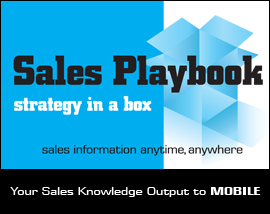Importance of CRM Software
CRM (customer relationship management) allows business owners to deal with with operational challenges such as declines in sales, high customer turnover, and disconnection between revenue goals and commission policies. If you are the owner of a small business there are many ways in which these client tracking tools can improve your bottom line and give your business superiority in key operational areas. We have chosen the top five reasons that we believe to be the most relevant. Note, make sure whichever program you choose fits your company’s processes, industry, revenue cycles and customer segment.
- Client Management
Using a CRM tool to improve client management can be done by gaining more visibility into your client’s needs, considering tactics necessary for long-term profitability, and creating plans that encourage your staff to enter new operational territory. For example, if the software you are using reveals that 75% of your clients are in a certain sector, you could then hire on extra salespeople who are experienced in that sector. You could also try setting up a new training program to increase your current staff’s knowledge of that specific sector, possibly saving you money associated with the overhead costs that are accrued when hiring new staff.
- Tracking Profitability
CRM tools will undoubtedly ease up the workload for your accountants. Thanks to the implementation of a CRM tool, they no longer have to worry about tracking every dollar of revenue and focusing on things like shipping costs, discounts and returns. The software especially helps small businesses, who will notice their bookkeeping system speeding up and accuracy of financial reporting improving, both of which are very important processes in the value chain (referring to the tasks and tools that allow a business to grow sales, run operations efficiently, and produce positive results at the end of the year).
- Adherence to Regulations etc.
If you apply the correct settings to your CRM tool (most CRMs allow you to instruct flagging of high-risk clients or generate relevant documents based on clients’ risk scores), you may not need to hire a compliance analyst to perform regulation checks. Effective client policies allow owners to make some business processes that were previously manual, automatic. In the long term this approach usually works, especially when it helps you stay in compliance with industry standards and you utilize a CRM tool.
- Sales Strategy
The last thing you ever want is to lose an opportunity for income by targeting the wrong customer segmentation. Especially as a small business this can result in slender margins long-term. CRM tools can provide you with valuable information about short-term and long-term sales trends, allowing you to adjust existing sales strategies and tactics. For example, a three year analysis of your cleaning services’ sales data indicates that incomes from private-practice lawyers and doctors is in a decline, while the revenue obtained from car manufacturers is on the rise. Using these results you may decide to strategically target car manufacturers and lessen your efforts in targeting private-practice lawyers and doctors.
- Improving Customer Service
CRM tools can improve your company’s customer service practices, allowing employees to respond to client inquiries more quickly and efficiently. For example, a small business owner can track customer complaints and see why their company is not performing as well as it should be. CRM software can also serve insights into a client’s ordering trends, bettering the chances that staff are not messing up any question related to ordering in the future.


